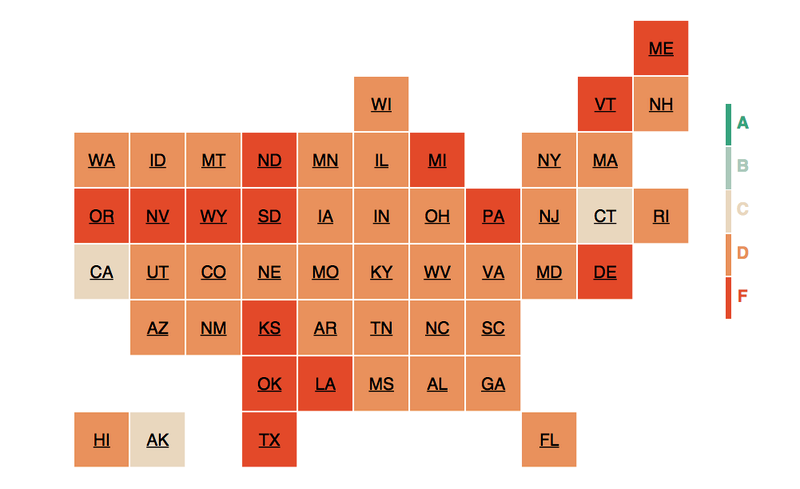The supreme quality for leadership is unquestionably integrity. Without it, no real success is possible, no matter whether it is on a section gang, a football field, in an army, or in an office.
– Dwight D. Eisenhower

“In 2013, the director of the Idaho Racing Commission told state lawmakers that controversial ‘instant racing’ machines could help save the state’s dying betting industry. He did not tell them he was also registered as a lobbyist in Wyoming on behalf of a company that operates the machines there.
“That detail didn’t come to light until January, when a reporter at the Idaho Statesman unearthed the potential conflict. The official resigned within days, but apparently broke no laws or rules because he had told his superiors about his employment.
“That’s right. A state official worked for a company in an industry he oversaw. Lawmakers apparently didn’t know about the relationship. And technically, there was nothing wrong with that. This situation is not as rare as you might think.”
In a comprehensive report, The Center for Public Integrity (Nov. 9), concluded that of all 50 states, “…only 3 states score higher than D+ in state integrity.”
“Alaska received the top grade, earning a C. Only two others — California and Connecticut — earned better than a D+; 11 states received failing grades, with Michigan coming in last. The rankings and grades are based on detailed answers to 245 questions that were researched by experienced reporters in each state. The queries are divided into 13 categories — from public access to information to campaign finance to ethics enforcement — and deal not only with the laws but also how well they’re enforced or implemented. …
“It may be tempting to write off corruption in state government as small-time, little more than fodder for racy headlines and tasteless jokes. But in fact, state legislatures pass thousands of bills a year and collect and disburse more than $1 trillion. Indeed, gridlock and partisanship in Washington D.C. have pushed a majority of Americans to turn to state and local government for solutions to the country’s problems, according to a recent poll. Given the findings of the State Integrity Investigation, that’s a worrisome prospect.
“At the same time, newspaper coverage of statehouses is shrinking, with full-time statehouse staff suffering a 35 percent drop between 2003 and 2014, according to the Pew Research Center. Newswires, nonprofit news organizations and other unconventional outlets are trying to fill the gap, but they haven’t made up for the loss of newspaper reporters in the halls of state capitols. With fewer prying eyes snooping into their business, perhaps it’s no surprise that state officials regularly engage in such dubious behavior.”
“In 36 states, the State Integrity Investigation found, lawmakers at least occasionally vote on bills that may present a conflict of interest. Take the lawmaker in Missouri who introduced a bill this year to prohibit cities from banning plastic bags in grocery stores. It just so happens he’s also state director of the Missouri Grocers Association. Or his peers in real estate and ranching who sponsored bills to help landlords and cattlemen. And those are just the ones we know about.
“ ‘We would love to be able to do more comprehensive audits,’ said Carol Williams, executive director of Kansas’ Governmental Ethics Commission. Williams told the investigation’s Kansas reporter that her staff is unable to audit the financial disclosure forms submitted to her office. Instead, all they can do is make sure officials are filling them out. ‘Whether they are correct or not, we don’t know,’ she said. …
“Before launching the project in 2011, the Investigation consulted nearly 100 government integrity experts to determine what to measure, then created its State Integrity Index with 330 ‘corruption risk indicators.’ In preparation for round two, the Investigation returned to many of those experts in 2014 and drew on experiences from the first round to revise and condense these to a more focused 245 indicators.
“Journalists in each state conducted interviews and research to score the indicators, based on detailed scoring criteria. Editors at Global Integrity and the Center for Public Integrity reviewed the journalists’ work for accuracy and internal consistency. Experts in every state then independently reviewed the data.”
Alaska comes out on top with a grade of C, according to the Center’s study. “Alaska excelled in several areas, including oversight of lobbyists, easily-accessible political finance data, and strict ethics rules governing the executive and legislative branches. One of the notable standouts is the category for judicial accountability, for which the state earned a B-, the best score in the nation.”
Nonetheless, as you can read in the breakdown, there’s a whole lot of room for improvement.
The Center offered no specific solutions. That’s not its mission. Clearly, more oversight is necessary and all of us, the Center suggests, can email our state political leaders with the report attached, making them aware of the problem and asking, “What are you going to do about it?”
I plan on contacting both my state Senate and Assembly representatives and will let you know any results.
Comments









